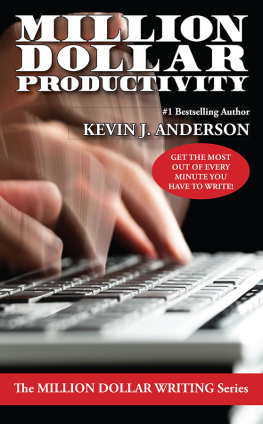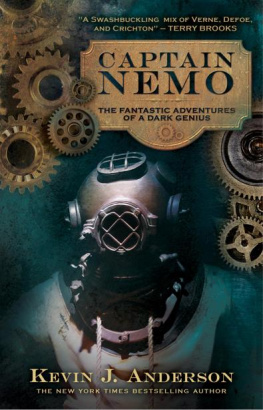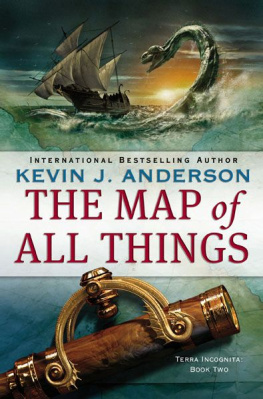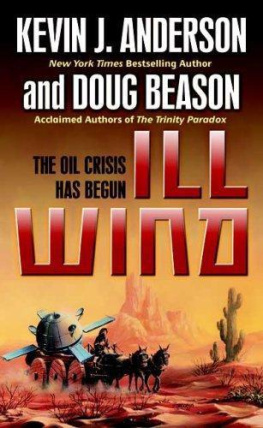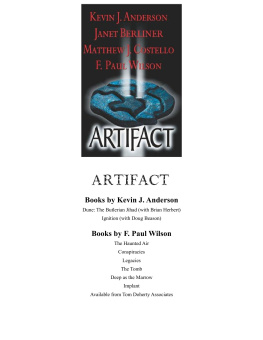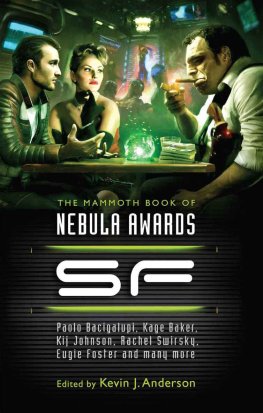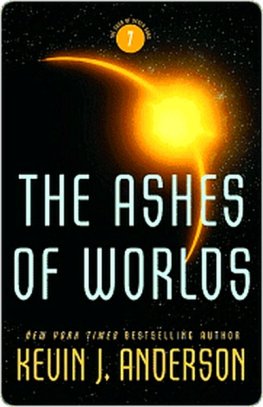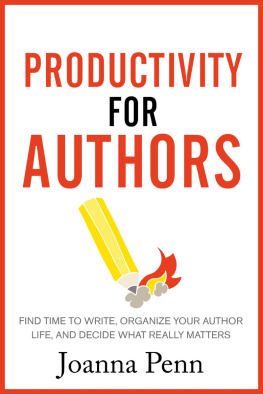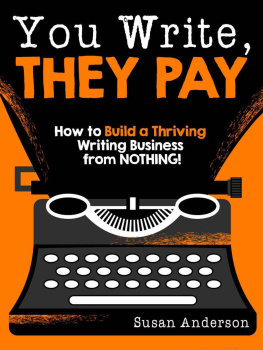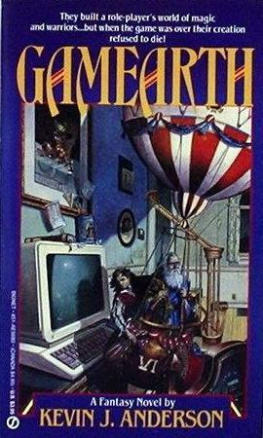Book Description
Life is crazy and hectic for most of us. Were surrounded with personal and family obligations, jobs, fitness programs, virtual mountains of email, not to mention videogames, TV, smartphones, social networking, and millions of things to check out on the web.
With all those distractions, how does an aspiring author find time to write?
And when you do find the time, how do you make the most of it?
Award-winning and #1 international bestselling author Kevin J. Anderson is one of the most prolific authors in the business. He has published over 125 novelsan average of five novels a year, every year, for the past quarter century. Anderson has taught numerous writing seminars and lectured on productivity, and here he shares his tips on how to find the time to write, and how to make the most of that time.
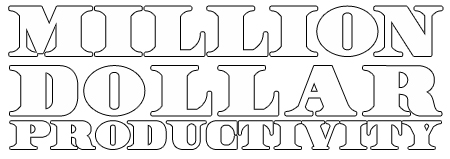
Kevin J. Anderson
Digital Edition 2014
WordFire Press
wordfirepress.com
ISBN: 978-1-61475-230-1
Copyright 2014 WordFire, Inc.
All rights reserved. No part of this book may be reproduced or transmitted in any form or by any electronic or mechanical means, including photocopying, recording or by any information storage and retrieval system, without the express written permission of the copyright holder, except where permitted by law. This novel is a work of fiction. Names, characters, places and incidents are either the product of the authors imagination, or, if real, used fictitiously.
This book is licensed for your personal enjoyment only. This ebook may not be re-sold or given away to other people. If you would like to share this book with another person, please purchase an additional copy for each recipient. Thank you for respecting the hard work of this author.
Cover design by Janet McDonald
and
Art Director Kevin J. Anderson
Cover artwork images by Dollar Photo Club
Book Design by RuneWright, LLC
www.RuneWright.com
Kevin J. Anderson & Rebecca Moesta, Publishers
Published by
WordFire Press, an imprint of
WordFire, Inc.
PO Box 1840
Monument, CO 80132
Contents
Introduction
Back in the heyday of pulp fiction magazines, when freelancers struggled to pay the bills by writing stories for half a cent per word (at most), they had to produce, produce, produce. Their motto was Be prolific or starve. Armed only with manual typewriters and carbon paper, the most popular and productive writers managed to crank out entire novels in only a few days, stories and novelettes in a single sitting.
Today, with an arsenal of writing tools that includes word processors, email, scanners, internet research, lightning-fast printers, digital recorders, and voice-recognition software, it must be easy for modern authors to be even more prolific than their prehistoric predecessors. Right?
Life is crazy and hectic for most of us. Were surrounded with personal and family obligations, jobs, fitness programs, virtual mountains of email, not to mention videogames, TV, smartphones, social networking, and millions of things to check out on the web.
With all those distractions, how does an aspiring author find time to write?
And when you do find the time, how do you make the most of it?
Thats what Ill show with this book. You dont have to be manically productive (though some of us consider that to be fun), but you will learn ways to get more writing out of every available moment.
Part I
No ExcusesFinding the Time to Write
Being a Full-Time Writer
Im not a typical writer, I admit that. I might be at the far end of the bell curve regarding the time and energy I spend on writing. This is a conversation that runs through my head:
Writing isnt a hobby. Writing is a passion.
Writing is a way of life.
Writing is the thing that comes to mind first when you ask yourself, What am I doing today?
Writing is always in the back of your mindwhen youre watching football games with the family, or sitting in a meeting at work, or waiting to be served at a restaurant, or fidgeting in the dentists office. The voice inside keeps whispering louder and louder, I could be writing right now!
When you glimpse interesting people in a crowd, when you experience an unusual event, when you see a spectacular landscape, your immediate reaction is, How can I use this in my writing?
If those statements ring trueif you smile and say, Hey, thats me!then this book is for you.*
*Standard disclaimer: Theres nothing wrong with dabbling, either. Its enjoyable and often therapeutic to unleash your creative impulse. Dont worry if you cant write all the timeyoull still find parts of Million Dollar Productivity useful.
Comic writer/artist Howard Tayler says, Being a full-time writer is great. You only have to work half daysand you get to decide which twelve hours that is.
I am a full-time writer, 24/7birthdays and holidays included, 365 days a year. Most of my full-time writer friends have a similar schedule. They center their lives around researching, writing, editing, publishing, and promoting what they write. Its not an easy job.
What does it mean to be a writer, one hundred percent? Every aspect of life has something to do with writing, or how you can apply it to your writing. Its how you frame the things you do in a way that they have some bearing on writing. Obsessive? Okay, maybe a little.
I have written adult books, non-fiction, young adult books, even childrens pop-up books. I have worked in the fields of science fiction, fantasy, mainstream thrillers, mysteries, horror, comedy, urban fantasy, even historicals. I have done comic books, articles, short stories, and novels so thick that whole forests tremble when my publisher contacts the printing plant for the first press run.
I have been a waiter in a restaurant, a bartender, a caretaker for white lab rats used in medical research, a farm worker, a technical writer and editor, and a co-owner of a beauty salon. I love to climb mountains or hike long wilderness trails.
I am the co-producer on a major film, as well as a public speaker, a workshop presenter, a published photographer, a graphic designer, a record producer, president of a small company, and with my wife Rebecca Moesta, the publisher of WordFire Press.
So far.
And I generally write five or more novels a year. Ive learned how to get the most out of every possible minute I have available to write, and Ill share some of the techniques Ive learned.
If Only I Had the Time
During the Olympics, the world watches great athletes from all nations perform seemingly impossible feats. When those well-toned men and women receive their medals, we admire them for their almost superhuman abilities.
As we sit on the couch munching potato chips, however, most of us dont kid ourselves that we would be just as skilled, just as fast, just as strong if only we had the time.
But for some reason, a lot of people believe that about writing books. Anyone can write, they say. How hard can it be to string a bunch of sentences together? They could do it if they just sat down and put their minds to it. If only they had the time.
Heres how the conversation often goes:
A person at one of my book-signings or appearances walks up to the table, shuffles feet, looks away, then looks at me. Ive always wanted to be a writer. I could write a novel.
Me: Oh? Why havent you?
Person: I just dont have the time.
Me: Hmm. Cant you scrape together a few hours a week to devote to the project?

